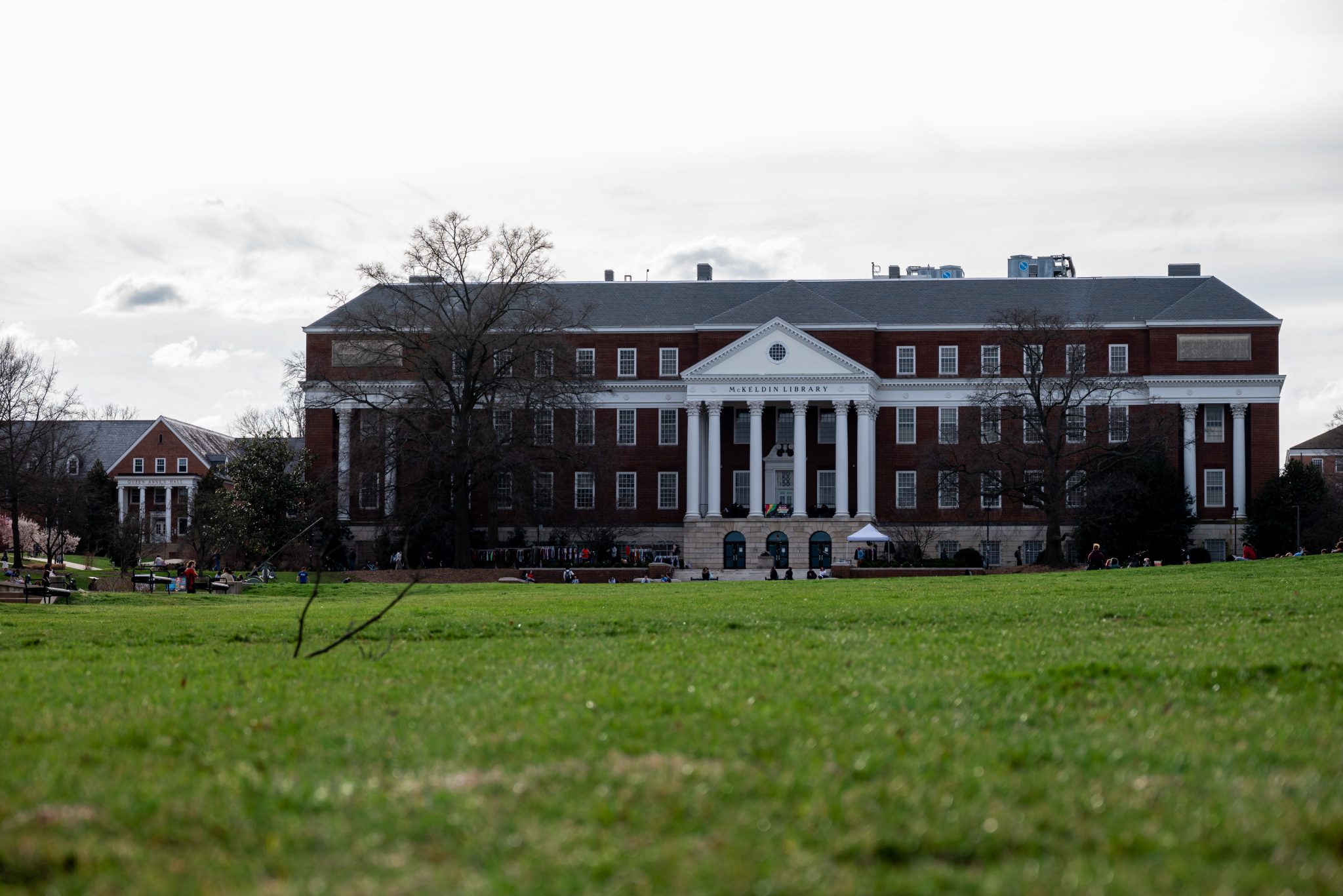Views expressed in opinion columns are the author’s own.
The University of Maryland prides itself on inclusivity, but one area often overlooked is how it accommodates students with sensory processing challenges. McKeldin Library, a place for student study and collaboration, can be overwhelming for neurodivergent students or people with sensory sensitivities. With rising mental health challenges, it’s time to consider if there is a better way to support these students.
Sensory overload from fluorescent lights, background noise and crowded spaces can impact neurodivergent peoples’ focus and intensify their anxiety. For students dealing with these challenges, a library that’s meant to produce academic success can quickly turn into an stressful environment — one that even an offering to Testudo will not free you of.
While the library offers various study spaces, none are designed to be sensory-friendly for all students. Sensory rooms could be a more effective solution.
Many students, particularly those who are neurodivergent, lack access to places that minimize distractions. By creating a space where students can decompress, the university could help reduce sensory overloads and their negative impacts on mental health and academic performance.
Introducing sensory rooms is a practical solution that would provide immediate benefits. These rooms could include dim lighting, soft seating, noise-canceling headphones and other visual fixtures to create a low-stimulation environment for students to relax and focus.
Other universities are already implementing sensory rooms with success. Penn State has introduced sensory rooms in its libraries. The American Library Association recognized the initiative for its impact on student’s well being.
Penn State’s sensory rooms offer several tools and a spacious area for students. The room’s fairly sized windows allow for more natural light to enter the room and create an environment that is less anxiety and stress inducing.
By following Penn State’s example, this university could make McKeldin Library a more friendly space for neurodivergent people. Offering sensory rooms would show a commitment to acknowledging and accommodating the diverse needs of this university’s population. It would help alleviate the anxiety that can accompany studying in a crowded, noisy or bright library, especially for neurodivergent students.
But sensory rooms wouldn’t only benefit neurodivergent students. These rooms could benefit anyone who needs a quiet, calm environment to focus or recharge. But students who need it most, like people who experience frequent overstimulation, should have priority access to these spaces.
Neurodivergent individuals in higher education can face a wide range of challenges, which can have a toll on their emotional stability, self confidence and capacity to perform well academically. This can then negatively impact their academic performance. These challenges often include difficulties with sensory processing, organization and the need for tailored support systems.
Incorporating sensory rooms into McKeldin Library’s design would be a step towards committing to help with student’s mental health. Rising anxiety and depression rates among college students has put a strain on mental health services at this university.
Wait times have been an issue at the counseling center in recent years. The counseling center’s course of action thus far has been to prioritize severe cases, meaning that students who may not fall under that category are left on standby to get an appointment.
A step toward bridging the gap in resources offered for student mental health services is to implement sensory rooms. These spaces would provide an option to students who struggle with sensory overload to be accommodated in a space that reflects a more ideal environment for academic triumph. This would help in unloading some of the mental burden that currently weighs on many of this university’s students.
Anderson is a senior government and politics and philosophy major. He can be reached at alemus02@terpmail.umd.edu.



